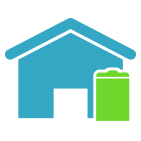Better Ways to Recycle Easily
Posted on 03/07/2025
Better Ways to Recycle Easily
Recycling is an essential practice in our daily lives that significantly impacts the environment. With increasing awareness about sustainability, finding better ways to recycle easily is crucial. This article will guide you through efficient recycling methods, offer valuable tips, discuss the pros and cons, and encapsulate key takeaways for a more sustainable lifestyle.
Understanding the Basics of Recycling
Recycling involves converting waste materials into new, reusable products. The process helps to reduce the amount of waste sent to landfills, conserve natural resources, save energy, and mitigate pollution. Understanding what can and cannot be recycled is the first step towards effective recycling.

Categorize Your Waste
One of the simple yet effective ways to enhance recycling is by categorizing your waste. Segregate recyclable materials into different bins, such as paper, plastic, glass, and metal. This makes it easier to dispose of these items correctly and improves the efficiency of recycling programs.
Investing in multi-compartment recycling bins can be a practical solution for households. Labeling each compartment provides clarity on what items go where, ensuring everyone in the household participates correctly.
Clean and Prepare Recyclables
Contaminated recyclables can hinder the recycling process. Ensure that all recyclable items are rinsed and cleaned before placing them in the appropriate bins. For example, wash out food containers and bottles to remove any remnants or residue. This step not only helps maintain cleanliness but also enhances the quality of the recyclable materials.
Stay Informed About Your Local Recycling Program
Recycling programs vary from one location to another. Understanding your local recycling guidelines is essential for proper waste disposal. Check with your local waste management services or municipal website to familiarize yourself with the accepted recyclable items, collection schedules, and any additional requirements.
Staying informed ensures that you are recycling correctly and doing your part to support local sustainability efforts.
Reduce and Reuse
The mantra "Reduce, Reuse, Recycle" emphasizes the need to minimize waste generation. Before recycling, consider reducing your consumption and reusing materials wherever possible. Opt for reusable items such as water bottles, shopping bags, and containers instead of single-use products.
Supporting a circular economy by repurposing items or donating them can significantly reduce waste and extend the lifespan of products.
Compost Organic Waste
Organic waste, including food scraps and yard waste, can be composted to create nutrient-rich soil. Composting not only diverts organic material from landfills but also reduces methane emissions. Start a compost bin in your backyard or participate in community composting programs to manage organic waste effectively.
Participate in Electronic Recycling Programs
Electronic waste, or e-waste, is a growing concern due to the rapid advancement of technology. Dispose of old electronics responsibly by participating in e-waste recycling programs. Many manufacturers and retailers offer take-back schemes to safely recycle electronics and prevent harmful chemicals from leaching into the environment.
Pros and Cons of Recycling
Pros:
Environmental Protection:
Reduces pollution by minimizing waste sent to landfills.Conservation of Resources:
Saves raw materials and conserves natural resources.Energy Efficiency:
Less energy is required to manufacture products from recycled materials compared to virgin materials.Economic Benefits:
Creates jobs and generates revenue through recycling programs and industries.
Cons:
Contamination Issues:
Improper sorting and contamination of recyclables can disrupt the recycling process.Cost:
Recycling programs can be costly to set up and maintain.Limited Recycling Options:
Not all materials can be recycled, and some require specialized facilities.
Tips for Better Recycling
Educate Yourself:
Stay informed about recycling guidelines and best practices in your community.Buy Recycled Products:
Support the market for recycled goods by purchasing items made from recycled materials.Organize Community Initiatives:
Engage your community in recycling drives and awareness campaigns.Use Recycling Apps:
Utilize mobile apps that provide information on recyclable items and local recycling centers.

Takeaways
- Categorize and clean recyclable materials for efficient processing.
- Stay updated on local recycling guidelines and participate in community programs.
- Reduce consumption, reuse items, and compost organic waste.
- Recognize the advantages and challenges of recycling to make informed decisions.
Conclusion
Adopting better ways to recycle easily is a collective effort that begins with individual actions. By understanding the basics, categorizing waste, preparing recyclables, and staying informed, we can significantly impact waste management and environmental sustainability. Despite the challenges, the benefits of recycling far outweigh the drawbacks, making it an essential practice for a greener future. Let's commit to responsible recycling and inspire others to join the journey towards a more sustainable world.
```










